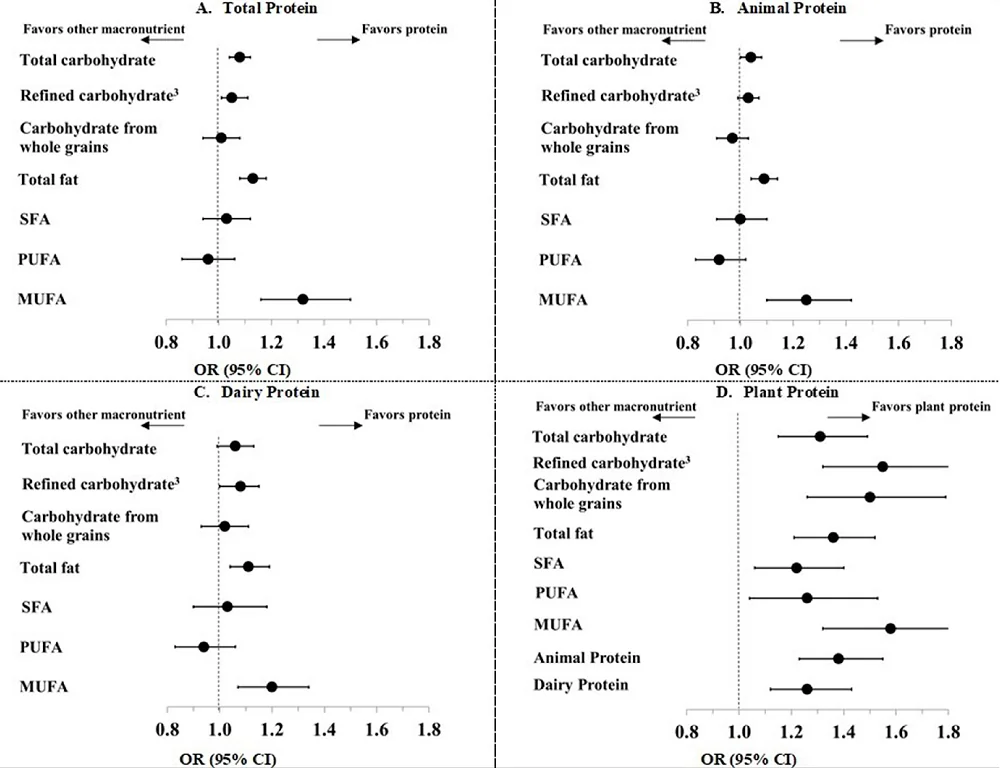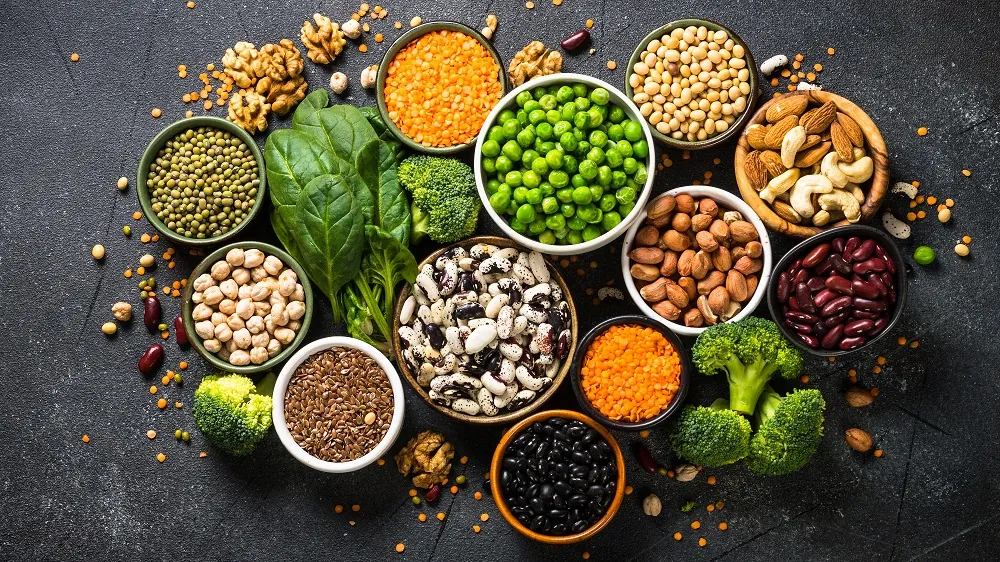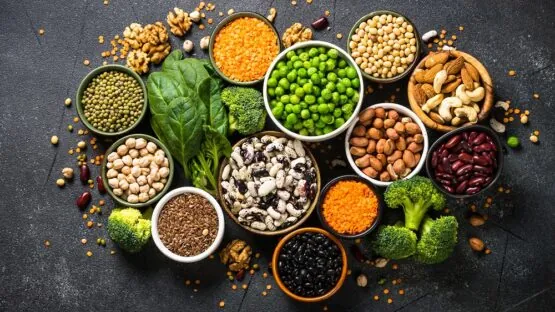A new large cohort study suggests that protein might be healthier than some other nutrients and that plant protein is especially beneficial for lifelong health [1].
How much and from what source?
The ideal amount of dietary protein has always been a subject of significant scientific debate. Some scientists claim that the recommended protein intake guidelines are way too high, while others contend that they are way too low. Numerous studies have shown that protein restriction (as well as limiting the intake of particular amino acids such as methionine and isoleucine) improves healthspan and lifespan in animal models [2]. On the other hand, older people might need more protein to maintain their waning muscle mass [3]. Yet another dimension to the debate is the source of protein, with plant protein slowly gaining recognition as the healthier kind [4].
Plant protein scores big
This new study adds some more data to the pool. It was based on the prospective Nurses’ Health Study cohort and included 48,762 NHS participants whose age back in 1984 was less than 60. The researchers looked for correlations of the sources and total intake of protein with the odds of “healthy aging”, which was defined as “being free from 11 major chronic diseases, having good mental health, and not having impairments in either cognitive or physical function” at the time of follow-up, which mostly happened in 2014-2016. The results were adjusted for various confounding factors, including baseline age, race, education, smoking status, alcohol intake, physical activity, baseline history of high blood pressure and cholesterol, and total energy intake.
The researchers then tweaked the model some more, adding body mass index (BMI) and a couple of other variables. In all models, the total amount of protein was only mildly associated with healthy aging. Results for animal protein intake were inconclusive, with one model showing up to 20% less and the other showing 13% more chances of healthy aging for people with the highest levels of animal protein intake versus those with the lowest levels. Dairy protein intake was generally positively correlated with healthy aging, but the effect sizes were not large. Dairy protein was seen as a subset of animal protein.
Plant protein intake, on the other hand, showed consistent and strong association with healthy aging across all models. Each 3% increase in the amount of energy derived from plant protein was associated with 38% higher odds of healthy aging. In the same model, the difference in odds ratio between the quintiles with the lowest and the highest plant protein intake was 41%. Among the particular features of healthy aging, as defined by the researchers, plant protein intake was most strongly associated with the absence of physical function limitations and with mental health.
A potential for substitutions
The researchers also analyzed the effects of incremental substitution of one nutrient with another. The analysis suggests there are benefits in substituting calories from fat, especially from monounsaturated fatty acids (MUFAs), with calories from any kind of protein. Calories from carbohydrates were also found to be inferior to those from protein, to a certain extent. Here, too, plant protein reigned supreme, with much higher effect sizes than animal-based protein:

These results are at odds with previous research suggesting that MUFAs are a healthy type of fat [5]. MUFAs are abundant in olive oil, nuts, and some other plant-based foods.
This study has several important limitations. First, it included mostly females of European descent, and there are substantial and not fully understood differences between male and female aging. However, the results are largely consistent with other, more sexually diverse studies [6].
Second, populational studies like this one can only establish correlation and not causation, and their results are hard to interpret due to the abundance of variables. For instance, it is hypothesized that people who consume plant-based diets are generally more health-conscious, so their other behaviors might explain part of the effect. While the researchers attempted to correct for this and other factors, those corrections are always imperfect.
In conclusion, the findings from this large prospective study suggest that dietary protein intake, and especially the consumption of plant protein, in middle-aged female nurses, may be related to higher odds of healthy aging. Plant protein intake was favorably associated with several domains of health status of older adults, including good physical function and good mental health status. Our study contributes evidence to the role of protein in the etiology of healthy aging and adds specific insights to the importance of protein sources and relevant etiologic windows in midlife, which may contribute to providing recommendations regarding the amount of protein intake to promote healthy aging.
Literature
[1] Korat, A. V. A., Shea, M. K., Jacques, P. F., Sebastiani, P., Wang, M., Eliassen, A. H., … & Sun, Q. (2024). Dietary protein intake in midlife in relation to healthy aging–results from the prospective Nurses’ Health Study cohort. The American Journal of Clinical Nutrition.
[2] Mirzaei, H., Raynes, R., & Longo, V. D. (2016). The Conserved Role for Protein Restriction During Aging and Disease. Current opinion in clinical nutrition and metabolic care, 19(1), 74.
[3] Deer, R. R., & Volpi, E. (2015). Protein intake and muscle function in older adults. Current opinion in clinical nutrition and metabolic care, 18(3), 248.
[4] Huang, J., Liao, L. M., Weinstein, S. J., Sinha, R., Graubard, B. I., & Albanes, D. (2020). Association between plant and animal protein intake and overall and cause-specific mortality. JAMA internal medicine, 180(9), 1173-1184.
[5] Schwingshackl, L., & Hoffmann, G. (2014). Monounsaturated fatty acids, olive oil and health status: a systematic review and meta-analysis of cohort studies. Lipids in health and disease, 13, 1-15.
[6] Ortolá, R., Struijk, E. A., García-Esquinas, E., Rodríguez-Artalejo, F., & Lopez-Garcia, E. (2020). Changes in dietary intake of animal and vegetable protein and unhealthy aging. The American Journal of Medicine, 133(2), 231-239.



